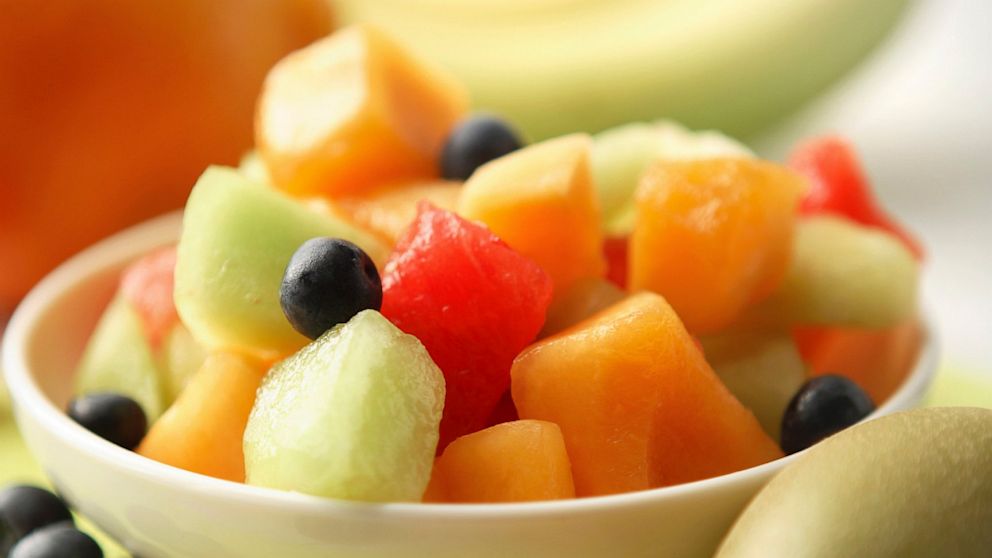5 Reasons Fruit Isn't Making You Fat
Five reasons to continue enjoying cherries, berries, melon and more.

July 8, 2013— -- intro: Sugar has been making headlines as of late, with celebrities and trainers alike singling it out as one of the key culprits in America's obesity crisis.
Trouble is, fruit – because it contains natural sugar – sometimes gets lumped in with foods like baked goods, candy and sugary drinks, and as a result, unnecessarily shunned. But in my private practice, I still recommend eating fruit – even for clients trying to lose weight.
Here are five important reasons to continue to enjoy cherries, berries, melon and other juicy gems, as part of a healthy weight-loss strategy.quicklist: 1category: 5 Reasons Fruit Isn't Making You Fattitle: Fruit eaters tend to weigh lessurl: text: Even I, a nutritionist, was surprised by the research, which has found that people who eat more servings of fruit have lower BMIs, even more so than veggie eaters.
Scientists aren't sure why, but it may be because fruits tend to replace higher calorie goodies and treats, whereas veggies tend to be add-ons. In other words, you're much more likely to choose an apple (rather than broccoli) instead of a cookie.
And that swap-out strategy can result in significant calorie savings over time. Even just once a week, reaching for one cup of fresh blueberries rather than a blueberry muffin would save 19,552 calories in a year's time, enough to shed at least five pounds of body fat.
In addition, emerging research indicates that consuming more produce is tied to smaller waist measurements and lower body fat percentages, even without taking in fewer calories, meaning that the quality of your calories is key.
quicklist: 2category: 5 Reasons Fruit Isn't Making You Fattitle: Fruit is packed with water and fiberurl: text: Apart from impressive nutrients, fresh fruit is high in water and fiber, so its naturally occurring sugar is less concentrated than other sweet foods.
For example, one cup of whole strawberries naturally contains about 7 grams of sugar, compared to about 13 grams in one tablespoon of maple syrup, 17 in a tablespoon of honey, 21 grams in 17 gummy bears, or 30 in a 12-ounce can of cola.
And even in fruits that pack more sweetness per bite, the sugar is bundled with valuable protective substances. Mango, for example, has been shown to prevent or stop the growth of breast and colon cancer cells.
12 Delicious Fruit Salads and Salsa Recipes
quicklist: 3category: 5 Reasons Fruit Isn't Making You Fattitle: Fruit has awesome antioxidants
url: text: While you'll find some of the same vitamins and minerals in both veggies and fruits, eliminating the latter altogether would cut out a broad spectrum of antioxidants that are unique to specific fruits or fruit "families."
In other words, the antioxidants found in stone fruits (cherries, peaches, plums) differ from those found in pomes (apples, pears), citrus (oranges, grapefruits, tangerines), melon (honeydew, cantaloupe), berries (raspberries, blueberries, strawberries, blackberries) and tropical fruits (banana, mango, papaya). That's key, because different types of antioxidants do different things.
One study, in female volunteers, found that eating a wider array of the exact same amount of produce for two weeks resulted in significantly less oxidation, a marker for premature aging and disease. In other words, even at the same quantity, a greater diversity offers more benefits.




